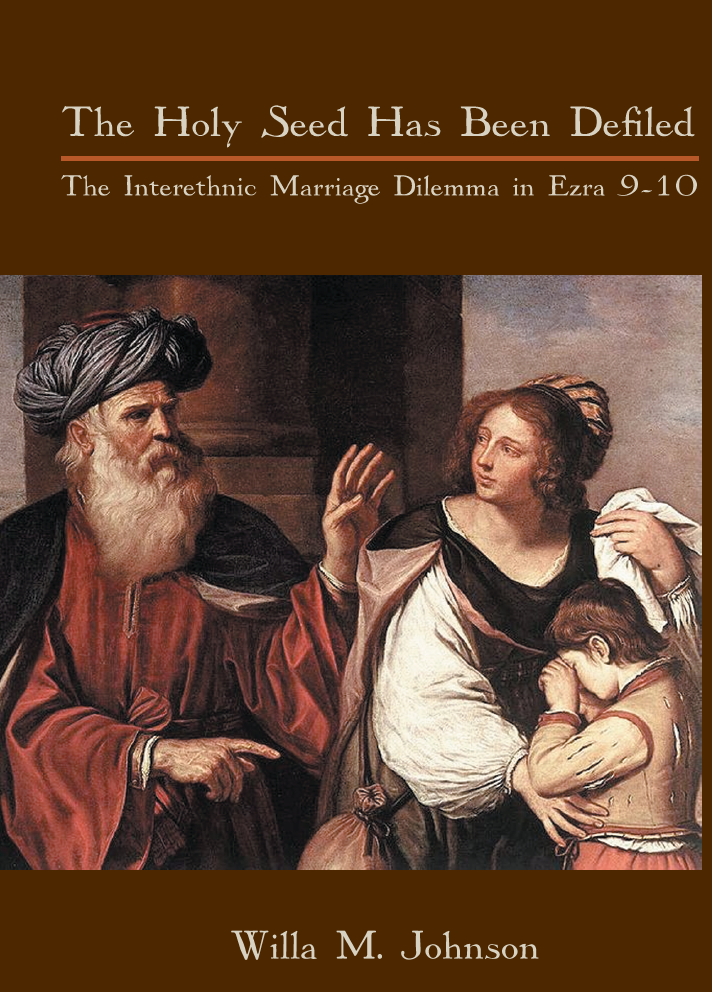The Holy Seed Has Been Defiled: The Interethnic Marriage Dilemma in Ezra 9-10
Original price was: £45.00.£20.00Current price is: £20.00.
This book represents a postmodern interdisciplinary approach to understanding an ancient biblical socio-political situation. As such, it offers fresh perspectives on ways that interpretations of the Bible continue to reflect the ideologies of its interpreters.
In the Book of Ezra —Nehemiah, Ezra commands Yehudite men to put away their foreign wives to avoid further defiling the ‘holy seed’. What is the meaning of this warning? Are Ezra’s words to be understood as a concern about race-mixing or is it emblematic of some more complex set of problems prevalent in the fledgling postexilic community? Ezra’s words, with their seemingly racialized thinking, have been influential in much political, religious and popular culture in the USA. It has been a backdrop for constructing racial reality for centuries, melding seemingly biblical ideologies with accepted European Enlightenment-era ideas about racial superiority and inferiority.
Willa Johnson combines archaeological data with social-scientific theory to argue for a new interpretation. In this anthropological and narratological analysis, Johnson views Ezra’s edict in the light of ancient Yehudite concerns over ethnicity, gender, sexuality and social class following the return from exile. In this context, she argues, the warning against intermarriage appears to be an effort to reconstitute identity in the aftermath of the cataclysmic political dominance by first the Babylonian and then the Persian empires.
This book represents a postmodern interdisciplinary approach to understanding an ancient biblical socio-political situation. As such, it offers fresh perspectives on ways that interpretations of the Bible continue to reflect the ideologies of its interpreters.
Additional information
| table of contents | 1 INTRODUCTION Biblical Text through (An)Other’s Eyes Identity and Analysis: Some Important Considerations 2 EXILE, TRAUMA, ETHNICITY AND PURITY: KEYS TO INTERMARRIAGE Exile and Trauma Trauma and its Aftermath Ethnicity: A Vehicle for Economic Development Purity amidst Postexilic Conditions Economic Ramifications of Marriage in Persian Yehud 3 THE POSTEXILIC SOCIOPOLITICAL AND ECONOMIC ENVIRONMENTS IN PERSIAN YEHUD Experiences of Exile Responses to the Exile Yehud under the Achaemenid Empire’s Economy Yehud in the ‘Beyond the River’ Province: Political Autonomy, Economic Power, and Achaemenid Ruling Strategies 41 Autonomy and the Economy Achaemenid Ruling Strategies and Yehudite Autonomy Particularities of the ‘fathers’ houses’ father’s houses’ Reconstructing the Social Structure Landownership and the ‘fathers’ houses’ 4 MARRIAGE CUSTOMS IN THE HEBREW BIBLE AND ARAMAIC PAPYRI Marriage Customs in Biblical Narratives Economics and Gender in Hebrew Bible Marriage Evidence from the Elephantine Marriage Documents 5 AN OTHER’S READINGS OF EZRA 9.1–10.18 An Anthropological Reading The Ideological Reading 6 ETHNICITY IN PERSIAN YEHUD AND MISINFORMED AMERICAN CULTURE |
|---|---|
| author | |
| authors | |
| editors | |
| isbn | |
| list price (paperback) | |
| page extent | |
| publication | |
| publication date | |
| series | |
| table of contenta | |
| version |

